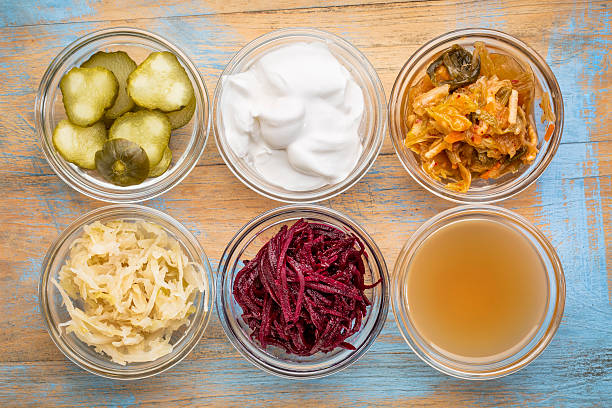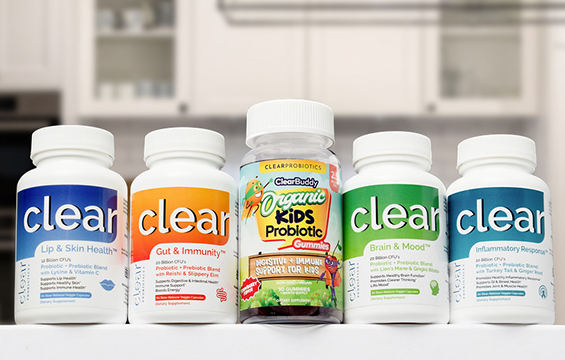Table of Contents
ToggleProbiotics play a crucial role in promoting optimal digestive health for infants, ensuring their tiny tummies thrive.
These beneficial bacteria and prebiotics can be naturally found in breast milk or added to the formula, supporting the development and maintenance of a healthy gut in infants.
Feeding smaller portions more regularly can prevent bloating and reflux while ensuring hydration and engaging in baby exercises can help with regular bowel movements.
Key Takeaways:
- Probiotics are essential for optimal digestive health in infants.
- Breast milk and formula can provide natural probiotics and prebiotics.
- A healthy diet with probiotic-rich foods, such as natural yogurts and fermented vegetables, is beneficial for infants.
- Feeding smaller portions more frequently can prevent bloating and reflux.
- Hydration and baby exercises can help with regular bowel movements.

The Importance of Probiotics for Infant Gut Health
Probiotics, often referred to as “friendly bacteria,” are beneficial microorganisms that can help maintain a healthy balance in the gut and support proper digestion.
For babies, a healthy gut is crucial as it plays a vital role in their overall well-being.
Probiotics have been found to alleviate common digestive issues in infants, such as colic and reflux.
By introducing probiotics into their diet, parents can help soothe their baby’s tummy troubles and promote a more comfortable and happier feeding experience.
When it comes to selecting the right probiotics for babies, it’s essential to choose strains that are specifically beneficial for their delicate systems.
Some of the recommended probiotic strains for infants include L. rhamnosus GG, B. Infantis, and B. lactis.
These strains have been extensively studied and shown to support a healthy gut flora in infants, enhancing their digestive health.
Natural yogurts and fermented vegetables, which are rich in probiotics, can be introduced gradually as your baby starts eating solid foods.
Feeding smaller portions more frequently can help prevent bloating and reflux while ensuring adequate hydration and engaging in gentle baby exercises can promote regular bowel movements.
| Key Points: |
|---|
| Probiotics contribute to the well-being of infants’ delicate stomachs. |
| Probiotics alleviate common digestive issues in infants, such as colic and reflux. |
| L. rhamnosus GG, B. Infantis, and B. lactis are recommended probiotic strains for infants. |
| Natural yogurts and fermented vegetables are probiotic-rich foods that can be incorporated into your baby’s diet. |
Probiotics and Infant Immune System Support
The immune system of an infant is still developing, and incorporating probiotics into their diet can provide valuable support and bolster their natural defenses.
By promoting a diverse and thriving gut microbiota, probiotics play a crucial role in strengthening the infant’s immune system.
Research has shown that certain probiotic strains, such as Lactobacillus rhamnosus GG, Bifidobacterium Infantis, and Bifidobacterium lactis, can enhance immune responses in infants.
These strains are believed to modulate the immune system and reduce the risk of allergies and infections.
Probiotics stimulate antibody production, regulate immune cell activity, and enhance gut barrier function, strengthening the immune system.
They help maintain a healthy gut environment, preventing the colonization of harmful bacteria that could lead to infections or digestive issues.
By promoting a balanced microbiota, probiotics contribute to overall digestive health and improve nutrient absorption, which is essential for the growth and development of infants.
Probiotic Strains Beneficial for Infants
| Probiotic Strain | Specific Benefits |
|---|---|
| Lactobacillus rhamnosus GG | Enhances immune responses and reduces the risk of allergies |
| Bifidobacterium Infantis | Modulates the immune system and improves gut barrier function |
| Bifidobacterium lactis | Promotes a balanced gut environment and supports digestive health |
Choosing the Best Probiotics for Your Baby
When it comes to choosing probiotics for your baby, it’s important to consider their age, specific needs, and the best ways to introduce these beneficial bacteria into their tiny systems.
By selecting the right probiotics, you can help promote a healthy gut and strengthen the immune system.
The first step in choosing the best probiotics for your baby is to consult with your pediatrician.
They can provide guidance based on your baby’s age, any existing health conditions, and specific dietary requirements. Your pediatrician may recommend probiotics that contain specific strains, such as L. rhamnosus GG, B. Infantis, or B. lactis, which are beneficial for infants.
Introducing probiotics to your baby’s diet can be done in several ways.
For breastfed infants, probiotics may already be present in breast milk. You can add probiotic supplements to your formula-fed baby’s milk.
Always follow the instructions provided by your pediatrician or the product manufacturer.
Recommended Probiotics for Babies
| Product | Strains | Benefits |
|---|---|---|
| LoveBug Infant Probiotics | L. rhamnosus GG, B. Infantis, B. lactis | Supports digestive health, strengthens immune system |
One recommended option for infants within their first year is LoveBug Infant Probiotics.
This product contains the strains L. rhamnosus GG, B. Infantis, and B. lactis, which have been carefully selected for their benefits in promoting healthy digestion and supporting the immune system.
LoveBug Infant Probiotics is designed specifically for infants and can be easily incorporated into their daily routine.
Remember, always consult with your pediatrician before adding any new supplements or making changes to your baby’s diet.
They can provide personalized advice and recommendations based on your baby’s individual needs. By choosing the best probiotics for your baby and introducing them most suitably, you can help lay the foundation for a healthy gut and a strong immune system.

Incorporating Probiotic-Rich Foods into Your Infant’s Diet
Creating a well-rounded diet for your infant includes including probiotic-rich foods that can contribute to their overall gut health and well-being.
Introducing probiotic-rich foods early on can have long-lasting benefits for your little one.
One easy way to incorporate probiotics into your baby’s diet is through natural yogurts.
Look for varieties labeled as having live or active cultures, as these contain beneficial bacteria.
Remember to choose plain yogurt without added sugars or flavors, as these can be harmful to your baby’s developing palate. You can mix a small amount of yogurt into pureed fruits or veggies for added flavor and nutrition.
Fermented vegetables, such as sauerkraut or pickles, are another excellent source of probiotics.
These foods are rich in lactic acid bacteria, which can promote a healthy gut. You can introduce small amounts of these vegetables to your baby’s diet by pureeing them or mashing them and mixing them with other foods.
Be sure to choose fermented vegetables that are low in sodium and free of added preservatives.
As with any new food, it’s essential to introduce probiotic-rich foods gradually, starting with small amounts and monitoring your baby’s reaction.
If you notice any digestive issues or allergies, consult with your pediatrician.
LoveBug Infant Probiotics: A Recommended Option for Your Little One
LoveBug Infant Probiotics is a trusted and reliable choice for parents looking to provide their infants with the necessary probiotics to support their tiny tummies’ development and overall well-being.
These probiotics, such as L. rhamnosus GG, B. Infantis, and B. lactis, are specifically beneficial for infants, as they help establish a healthy balance of bacteria in their gut, supporting proper digestion and nutrient absorption.
Adding LoveBug Infant Probiotics to your little one’s daily routine can help alleviate common digestive issues like colic, constipation, and diarrhea.
These probiotics are carefully formulated to be gentle on your baby’s delicate system, with strains that are scientifically proven to support their developing immune system.
LoveBug Infant Probiotics is designed for infants within their first year, providing parents with peace of mind knowing they are giving their babies the best start for a healthy gut.
FAQ
Q: Why are probiotics important for infants?
A: Probiotics are important for infants because they support their digestive health and help maintain a healthy gut. They can alleviate colic symptoms and promote a stronger immune system.
Q: Where can probiotics be found for infants?
A: Probiotics can be found in breast milk or added to the formula. They can also be obtained through probiotic-rich foods, such as natural yogurts and fermented vegetables.
Q: How can I prevent bloating and reflux in my baby?
A: Feeding smaller portions more regularly can help prevent bloating and reflux in infants. It is also important to ensure proper hydration and engage in baby exercises to aid in bowel movements.
Q: What are some probiotic strains beneficial for infants?
A: Some probiotic strains specifically beneficial for infants include L. rhamnosus GG, B. Infantis, and B. lactis. These strains can help support a healthy gut and digestive system.
Q: Which probiotics are recommended for infants within their first year?
A: LoveBug Infant Probiotics is a recommended option for infants within their first year. It contains specific strains that promote healthy digestive function and overall gut health.












